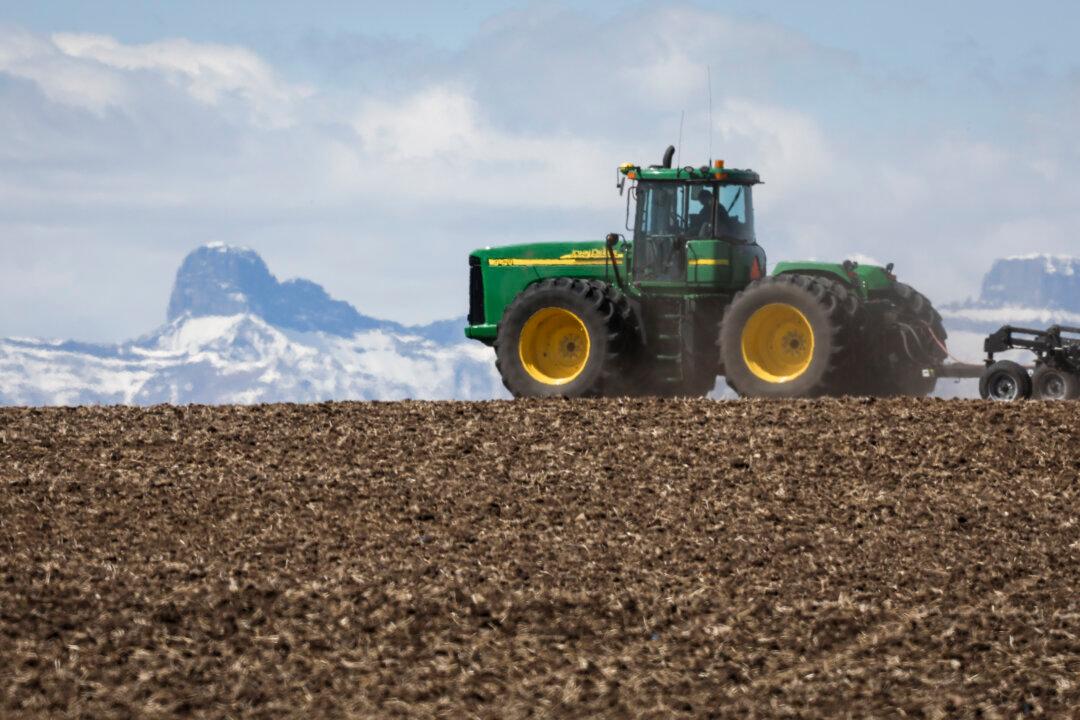Farmers are struggling with skyrocketing fuel and fertilizer costs and labour shortages while international trade restrictions have become another headwind since Russia’s invasion of Ukraine. Against this backdrop, a leading food expert says the World Trade Organization (WTO), while limited in its effectiveness, has a key role to play in ensuring free and fair trade in agricultural products.
Sylvain Charlebois, senior director of the Agri-Food Analytics Lab at Dalhousie University in Halifax, told The Epoch Times that “countries are starting to panic … and so there’s been some protectionism going on” due to the war in Ukraine, which NATO secretary general Jens Stoltenberg says may last for years.
“I think the WTO’s role is to promote trade and educate governments as much as possible [given] that perhaps in just a matter of a couple of days, it [export restrictions] could actually make things worse. And so all of these decisions have actually had an impact on prices overall. I think that’s the most important thing to do at this point,” he said.
The WTO concluded its five-day 12th Ministerial Conference (MC12) in Geneva on June 17. A Canadian Agri-Food Trade Alliance (CAFTA) delegation reported that commitments had been made to reform and strengthen the rules-based trading system, among other deliverables.
But some of the thornier issues remain works in progress.
“We hope members seize the momentum from MC12 to further advance discussions on tackling trade-distorting subsidies,” CAFTA VP Greg Northey said in a June 17 statement.
Leading up to MC12, CAFTA had pushed for significant WTO reforms given the significant role global trade plays in rising food prices and food insecurity. It issued a June 10 joint statement along with 24 other agricultural groups stating that “WTO rules have not kept pace with 21st-century commerce, and urgent action is required.”
Noting the problems of market access, tariff escalation, and quotas for agricultural products, and the need to eliminate market access barriers in all forms, the statement said “it is time for all WTO members to get serious about agriculture, as an ongoing lack of focus is hurting farmers, ranchers, and consumers worldwide.”
Charlebois explains that international trade exists to harmonize the planet’s resources since some countries are more efficient at producing certain commodities than others.
While he says an open, less protectionist trading environment is needed to keep costs under control, he suspects governments will continue to panic and there isn’t too much the WTO can do.
“The WTO specifically, which frankly has been undermined by several governments—a lot of people do question the WTO’s authority these days,” Charlebois said.
The Canadian Federation of Independent Business (CFIB) reported on June 20 that the vast majority of Canada’s agri-businesses (94 percent) say the rising prices of inputs have impacted them, followed by supply chain challenges (83 percent), government increasing business costs (72 percent), and labour shortages (57 percent).
“Given the current geopolitical situation in the world, economic sustainability, farm productivity and competitiveness should be at the heart of the policy framework to allow Canadian agri-businesses to supply their products across the country and the world,” said Virginia Labbie, CFIB’s senior policy analyst for agri-business, in a statement providing recommendations for Canada’s next policy framework.
Canada’s annual inflation reading came in at 7.7 percent in May, with food prices rising 9.7 percent being one of the primary drivers.
Mounting Trade Restrictions
Some countries are restricting food exports amid food supply disruptions, as seen in the past, with the number growing from 3 to 16 as of early April, according to an April 13 blog post by the International Food Policy Research Institute (IFPRI). Since then, that number has risen to 22 and “is now relatively stable,” according to the WTO, according to a May CAFTA report released June 14.
IFPRI explained that many export restrictions aren’t outright bans but are instead like taxes or other costs that increase consumer prices.
Export restrictions are measured in terms of food calories, whether it be wheat or corn etc. Canada is much less affected, with under 1.2 percent of the share of its imported calories under export restrictions by source countries.





